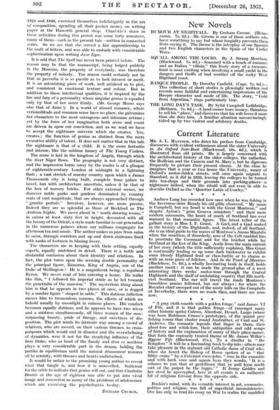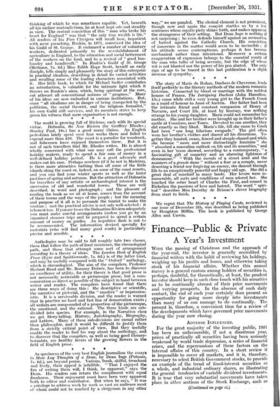Ruskin's mind, with its versatile interest in art, economies, politics
and religion, was full of superficial inconsistencies. One has only to read his essay on War to realize the muddled
thinking of which he was sometimes capable. Vet, beneath all his surface contradictions, he at least kept ode end steadily in view. The central conviction of this " man who broke his heart for England " was that " the only true wealth is life." All readers of his Fors Clavigera will recall how, impatient with mere preaching, Rusikin, in 1871, conceived the idea of his Guild of St. George. It embraced a number of voluntary workers, dedicated primarily to the re-establishment of agriculture in England, to the education and social betterment of the workers on the land, and to a revival of " good hus- bandry and handicraft." In Ruskin's Guild of St. George (Methuen, 7s. 6d.) Miss Edith Hope Scott, herself an early disciple, tells simply and pleasantly the story of this enterprise in practical idealism, describing in detail its varied activities and recalling some of the leading characters associated with it. Her little book, to -which Sir Michael Sadler contributes an introduction, is valuable for the intimate light which it throws on Ruskin's aims, which, being spiritual at the core, cut athwart all conventional notions of " progress." Many of his ideas are now embodied in various institutions. But, since " all .idealisms. are in danger of being stampeded by the politician, the social theorist, and the religious formalist," his own Guild still survives, and its members strive to keep
green his witness that mere organization is not enough. * * * *

































 Previous page
Previous page